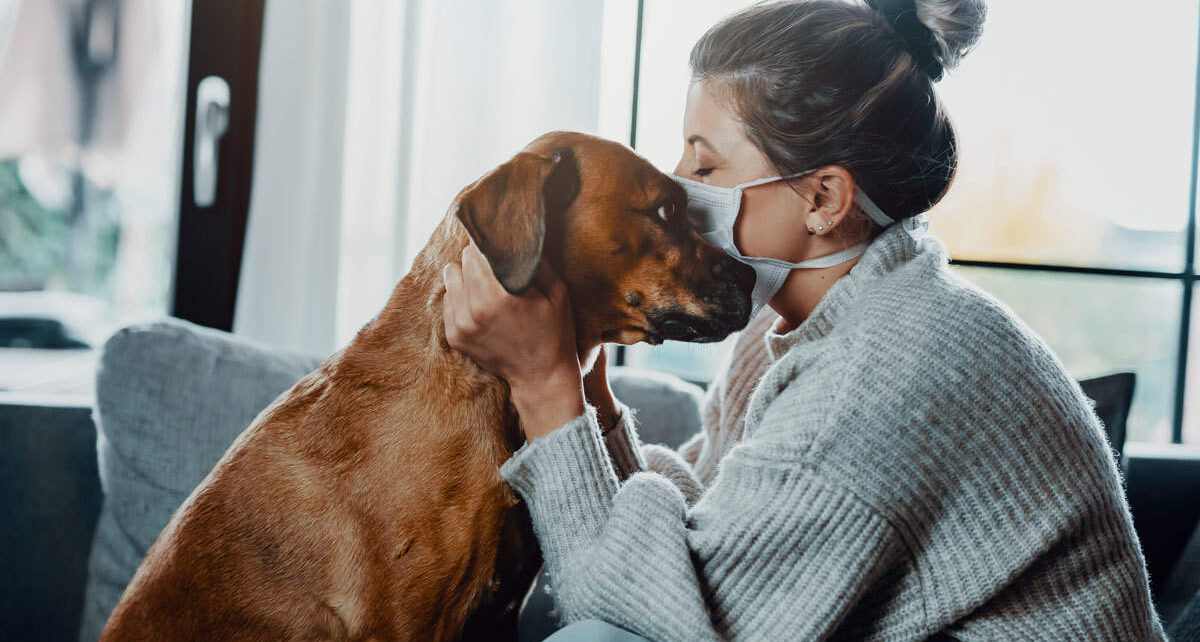Pets are an integral part of our families as they help us through difficult times and provide unconditional love. This is especially true during this stressful time of the Covid-19 pandemic.
Currently, no evidence exists that pets transmit the virus causing Covid-19 to people; however, some preliminary evidence suggests that people can transmit it to animals, as a handful of pet cats, tigers and dogs have tested positive.
The majority of the reported cases are thought to have been infected by their owners or caregivers, who had tested positive for COVID-19. In these cases, only a few exhibited respiratory signs and all have seemed to recover or are recovering. Prior laboratory studies also confirm that animals, such as cats, dogs, hamsters and ferrets, can contract the virus.
The American Veterinary Medical Association and CDC recommend the following guidelines for owners:
- Always wash your hands before and after interacting with your pets, whether you are sick or not.
- If you are sick, restrict your interactions with them if possible, including having someone else take care of your pets, if that is feasible.
- If you test positive for COVID-19, self-isolate away from your pets, along with other family members.
- If you are sick and/or test positive for COVID-19 and you must take care of your pet, wear a face mask when interacting (feeding, refilling water bowls, walking) and limit interactions. Do not hug, kiss or pet; do not share food, towels, clothing or a bed with your pets.
- Do not let other, non-family members interact with your pets.
- Keep cats indoors and walk your dogs on leashes only. Stay away from dog parks.
- While outdoors, do not let your dogs interact with other dogs, even if they know them. Keep the animals 6 feet apart.
- Keep collars, leashes, carriers and any other pet belongings clean and away from others’ pets.
- Clean-up after your dogs when walking them.
- Do not put a mask on pets. Masks could harm your pet.
- Contact your veterinarian if your pets are sick. If you are sick and/or test positive for COVID-19, call your veterinarian ahead of time to figure out a plan and have someone else take your pets to the veterinarian. At this time, routine testing for COVID-19 for pets is not recommended or offered; so, if your pets are exhibiting any signs that could be secondary to COVID-19 (nasal discharge, sneezing, coughing, difficulty breathing, vomiting, diarrhea, fever, lethargy), your veterinarian must rule out other, more common causes or diseases first. If tests for other diseases come back negative, your veterinarian will work with local, state and federal animal health and public health officials to determine if your pets should be tested for the virus.
- Stock up on pet supplies. The American Society for the Prevention of Cruelty to Animals (ASPCA) recommends preparing an emergency kit with at least a 30-day supply of medication and two weeks’ worth of food for your pet.
- Designate an emergency caregiver. Identify someone who can take care of your pet in case you can’t. Share with them your pet’s health issues, if any, and provide contact information for your veterinarian. Also, let them know other things about your pet, such as their habits, quirks, favourite foods, food preferences, and so on.
- Have a crate ready. If your pet needs to be relocated or transported, a crate can help protect your pet’s safety.
- Your pet should have proper identification, such as a collar with ID tag and a microchip with current contact information.




